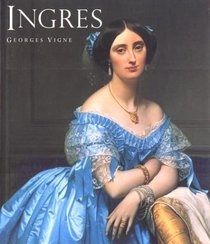Search -
Ingres
Ingres
Author:
Jean-Auguste-Dominique Ingres dominated French painting for much of the nineteenth century, from his emergence as the leading student of Jacques-Louis David and winner in 1801 of the prestigious Rome Prize, to his death in 1867. A champion of classicism and a devotee of Raphael and Poussin, Ingres's conviction that color should serve elegant lin... more »
Author:
Jean-Auguste-Dominique Ingres dominated French painting for much of the nineteenth century, from his emergence as the leading student of Jacques-Louis David and winner in 1801 of the prestigious Rome Prize, to his death in 1867. A champion of classicism and a devotee of Raphael and Poussin, Ingres's conviction that color should serve elegant lin... more »
ISBN-13: 9780789200600
ISBN-10: 0789200600
Publication Date: 10/1995
Pages: 351
Rating: ?
ISBN-10: 0789200600
Publication Date: 10/1995
Pages: 351
Rating: ?
0 stars, based on 0 rating
Genres:
- Arts & Photography >> Individual Artists >> ( G-I ) >> Ingres, Jean-Auguste-Dominique
- Arts & Photography >> Individual Artists >> General
- Arts & Photography >> History & Criticism >> Regional >> European
- Arts & Photography >> Art >> Instruction & Reference >> Reference




